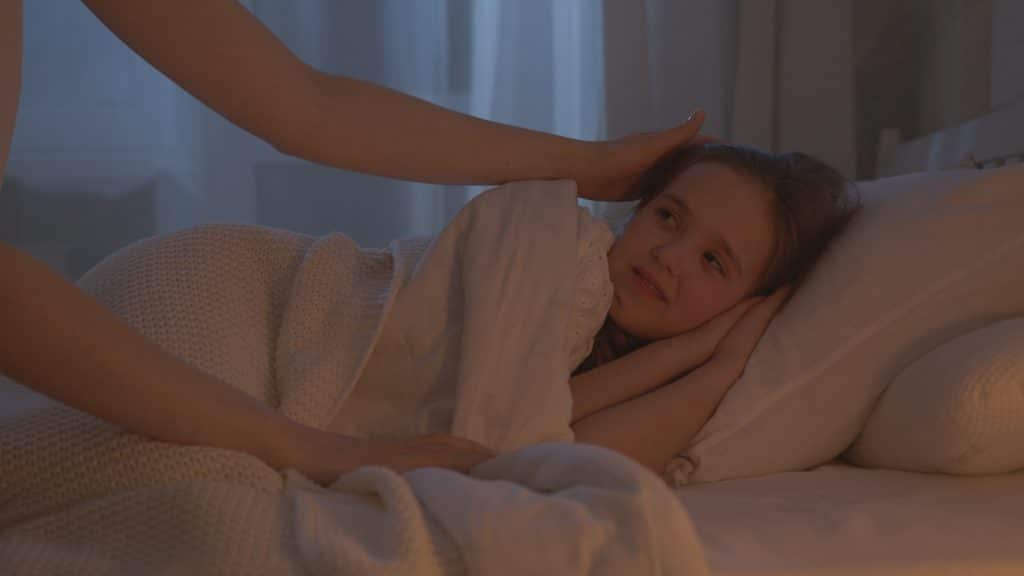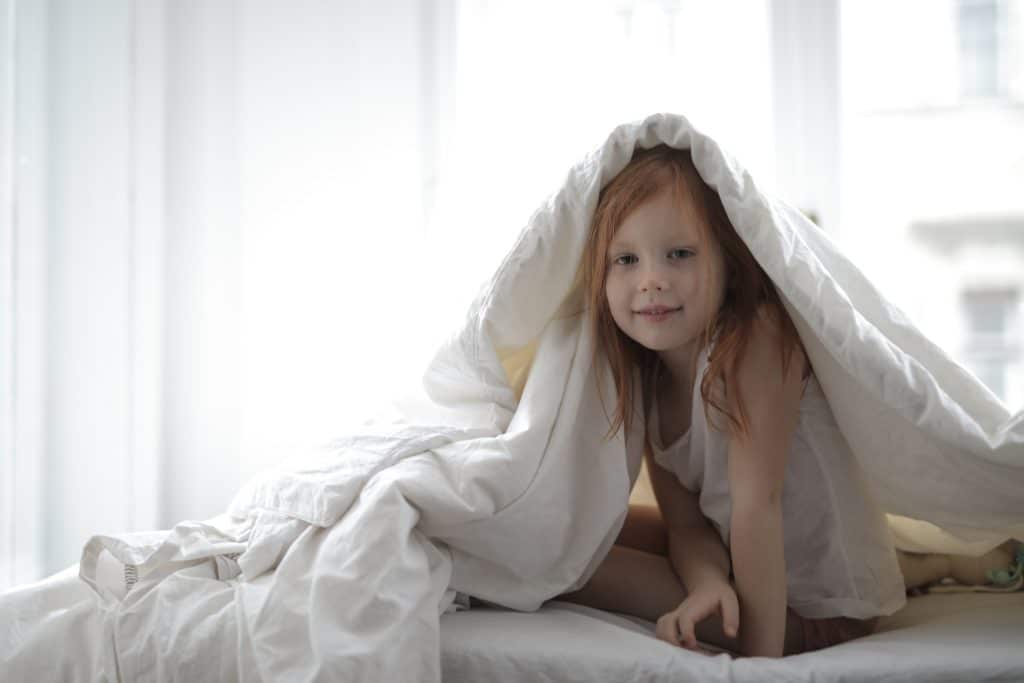The night is quiet, the house is settled, but your kid is waging a relentless battle with Morpheus. If this paints a familiar picture, you might be grappling with a sleep disorder in your child. This is no phantom of the night. According to the American Academy of Sleep Medicine, about 25% of children experience some form of sleep problem. Don’t fret – we’re here to shine a light in the dark. This blog will help unravel the veil of sleep disorders, and if you’re interested, you can take a sleep disorder quiz towards the end of this post to learn more about sleep disorders in your kid.
Table of Contents
Decoding Sleep Disorders in Kids
Sleep disorders in kids can be elusive for parents to identify. However, identifying patterns of restlessness or irregular sleep can help.
- Nightmares: Characterized by frightening dreams, usually in the second half of the night.
- Night Terrors: These occur during the first few hours of sleep and may cause screaming and confusion.
- Insomnia: A prevalent disorder, it involves difficulty in falling asleep, staying asleep, or both.
Recognizing the Red Flags
Early detection can be the difference between restless nights and restful sleep. Keep an eye out for these symptoms:
- Issues in falling asleep.
- Frequent awakening at night or very early in the morning.
- Daytime sleepiness or hyperactivity.
- Difficulty in paying attention.
- Performance issues in school.

Types of Sleep Disorders in Kids
The type of sleep disorders in kids can vary. Here’s a brief overview:
- Insomnia: Persistent difficulty falling or staying asleep.
- Sleep Apnea: Disrupted breathing during sleep.
- Nightmares: Frequent, terrifying dreams that often wake a child from sleep.
- Night Terrors: Sudden arousal from sleep with intense fear, often accompanied by a scream or shout.
Read more: Why Do Kids Sleep Walk?
Impact on Neurodivergent Kids
Sleep disorders are not a respecter of boundaries. They are more common in kids with special needs, such as Autism or ADHD. For these neurodivergent kids, an irregular sleep pattern can exacerbate the challenges they already face in their day-to-day lives.
Approaching the Sleep Disorder Test
The sleep disorder test is a reliable way to identify if your kid might be dealing with a sleep disorder. Remember, this is not a definitive diagnosis tool, but it can provide insights that enable you to seek professional help. So, why wait? The only masks at this masquerade are the ones we wear during REM sleep. Let’s unveil the truth about your kid’s sleep cycle.
What Next?
After taking the sleep disorder test, it’s time to discuss the results with your pediatrician. They can recommend a sleep specialist if necessary, and together, you can map out an effective treatment plan to ensure your child can get a good night’s rest.
Can I Manage Sleep Disorders at Home?
Certainly, there are home remedies that can assist in managing sleep disorders. Here are a few:
- Establishing a regular sleep schedule.
- Maintaining a calm and comfortable sleep environment.
- Limiting exposure to screens before bedtime.

Read more: How to Make a Kid Sleep Instantly Without Melatonin
Goally | Apps To Support Child Development
Looking for fun ways to help your child learn life skills? Try Goally! The Goally tablet comes with award-winning learning apps and video classes to help kids develop the skills they need to become independent with FUN & evidence-based practices.

Our apps teach executive function, language, emotional regulation, finger dexterity skills, and more.
As your child develops new skills, you can increase the difficulty level of the tasks in the app to challenge and motivate them even further. This helps your child grow and progress at their own pace, while also keeping them engaged and excited about their development.

In Conclusion
It’s never easy seeing your child struggle with sleep. Yet, remember this: an understanding parent is the most potent tool in any child’s sleep toolkit. Equipped with knowledge, resilience, and a dash of patience, you’re more than capable of navigating the night-time nuances. Cherish the wins, learn from the losses, and always keep striving for those sweet dreams.
For neurodivergent kids, parents, and caregivers keen on finding more support, Goally’s Skill Building Tablet is an excellent resource. It’s designed to empower your child, promote independence, and make daily routines more manageable. With resources like our sleep disorder test and the Goally tablet, you’re not just standing by, you’re taking charge. After all, remember that every star needs a little darkness to shine.

Hennah is an experienced writer and researcher, helping children with autism, ADHD, and other neurodivergent conditions. As a blog contributor for Goally, she combines her deep understanding of neurodiversity with practical advice, offering valuable insights to parents and educators.





